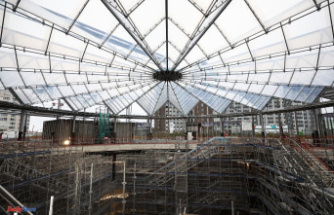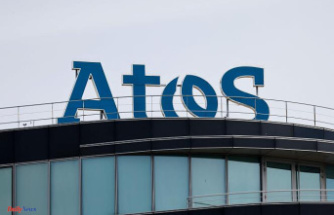High inflation, rising interest rates, fear of recession and the hope of falling real estate prices are currently deterring potential home builders. The mortgage lending business is going badly. According to industry sources, the market has not experienced such a slowdown in the last 25 years.
Because of the poor economic prospects, potential home builders in Germany are becoming more cautious. This is now being felt by mortgage lenders and banks, which are sitting on their loans due to the lower demand.
The financial service provider Hypoport is particularly affected by the slump in the real estate market. Its new customer business has recently collapsed massively: the transaction volume on the Europace credit platform, which belongs to Hypoport, fell by 18 percent in the third quarter to almost 20 billion euros. Hypoport cites the reduced number of new real estate financing transactions as the main reason.
Hypoport is listed in the SDax and is based in Lübeck. The group also includes Dr. Klein Privatkunden AG, which also offers real estate financing and consumer loans for consumers. Business is worse there too: In the summer quarter, Dr. Still small loans with a total volume of 7.8 billion euros, which corresponds to a decrease of 23 percent.
According to Hypoport, demand for real estate loans is very weak, both among private customers and professionals. The group had to correct its forecast for the current year because of the downward trend in September - and suspended its annual targets. The original target was sales of between 500 and 540 million euros and earnings before interest and taxes (EBIT) of 51 to 58 million euros.
After Hypoport collected the figures, the share temporarily fell by 39 percent. However, the fall over the year is even more blatant: it has fallen by a full 82 percent since mid-October 2021. At that time, a Hypoport share cost EUR 479.20, but now it is only EUR 87.90 per share.
"The German residential real estate market has not experienced such a slowdown in the last 25 years," Hypoport boss Ronald Slabke told the Reuters news agency. The price expectations between buyers and sellers have differed so much in recent weeks that contracts are often not concluded. Real estate is therefore sometimes on the market much longer than at the height of the real estate boom.
Slabke cites high inflation, rising interest rates, fears of recession and the hope of falling house and land prices as reasons for the caution of potential buyers. Recently, analysts also predicted a decline for other construction financiers and brokers.
This development not only worries the mortgage brokers themselves, but above all the banks and savings banks. They provide the real estate loans and are now left with them. "Demand has collapsed from one day to the next, many projects in the planning stage are being cancelled," said Helmut Schleweis, head of the Sparkasse, to the "Handelsblatt". The savings banks are the market leaders in construction financing in Germany.
And the prospects are not getting any better: Schleweis assumes that the figures for September and October will be even worse for classic construction financing. On the other hand, the business with loans for energy renovation could be better in the future, but there is a catch. "However, the average loan volume is around 40,000 euros - and is therefore significantly lower than when buying real estate, where the average last time was around 400,000 euros," says Schleweis.
In contrast to the savings banks, the financing business of direct banks such as ING and Commerzbank has recently been better off. According to Schleweis, this could also be due to the fact that savings banks often have customers with lower incomes who are affected by crises earlier than people with medium and high net worth.
The article first appeared on Capital.de.












